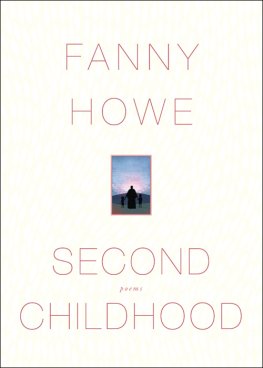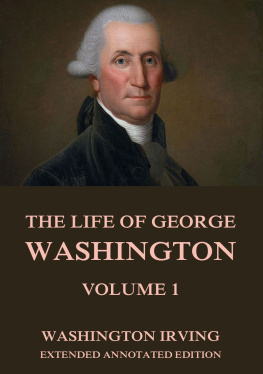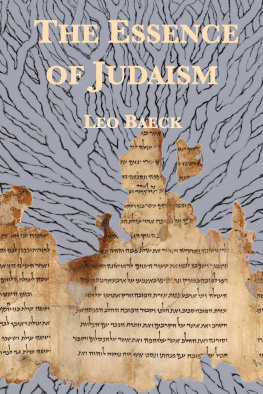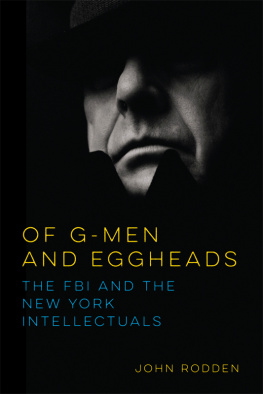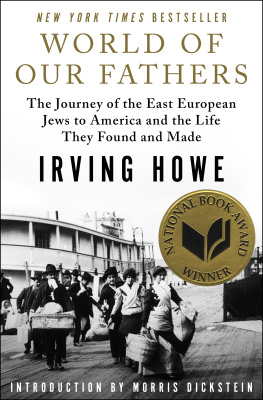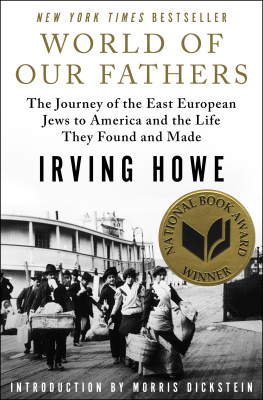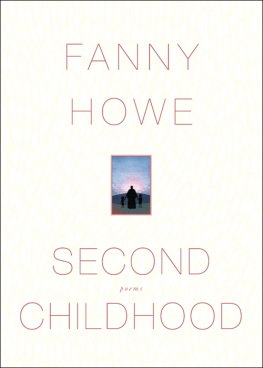Thank you for buying this ebook, published by NYU Press.
Sign up for our e-newsletters to receive information about forthcoming books, special discounts, and more!
Sign Up!
About NYU Press
A publisher of original scholarship since its founding in 1916, New York University Press Produces more than 100 new books each year, with a backlist of 3,000 titles in print. Working across the humanities and social sciences, NYU Press has award-winning lists in sociology, law, cultural and American studies, religion, American history, anthropology, politics, criminology, media and communication, literary studies, and psychology.
IRVING HOWE
GERALD SORIN
IRVING HOWE
A Life of Passionate Dissent

NEW YORK UNIVERSITY PRESS
New York and London
2002 by New York University
All rights reserved
Library of Congress Cataloging-in-Publication Data
Sorin, Gerald, 1940
Irving Howe : a life of passionate dissent / Gerald Sorin.
p. cm.
Includes bibliographical references and index.
ISBN 0-8147-9821-7 (cloth : alk. paper)
1. Howe, Irving. 2. JewsNew York (State)New YorkBiography.
3. CriticsNew York (State)New YorkBiography.
4. Jewish radicalsNew York (State)New YorkBiography.
5. JewsNew York (State)New YorkIntellectual life.
6. New York (N.Y.)Biography. 7. New York (N.Y.)Intellectual life. I. Title.
F128.9.J5 S665 2002
974.7;1004920092dc21 2002008168
New York University Press books are printed on acid-free paper, and their binding materials are chosen for strength and durability.
Manufactured in the United States of America
10 9 8 7 6 5 4 3 2 1
Contents
All illustrations appear as an insert following page
Preface
IRVING HOWE rose from Jewish immigrant poverty in the depression-ridden East Bronx of the 1930s to become one of the most important public thinkers in America, preeminent in three major fields of general interest: radical politics, literature, and Jewish culture. Howe was the personification of the New York Intellectual. But he was also something more. A man of great passions, he was deeply committed to social reform, ardently devoted to fiction and poetry, in love with baseball, music, and ballet, and with life itself.
By the time he died in 1993 at the age of seventy-three, Howe was known most widely for his award-winning book World of Our Fathers (1976), a richly textured portrayal of the East European Jewish experience in New York. This book represented a culmination of Howes own reconquest of Jewishnesshis personal journey from alienation to repossession. But Howe had also won extraordinary attention and admiration over the course of a half-century for his prodigious output of illuminating essays on American culture that appeared in a host of periodicals, including Partisan Review, Commentary, the New Republic, and Harpers. These essays proved him to be not only a brilliant critic but one, like his contemporary Alfred Kazin, dedicated to the common reader. And to the end Howe remained a fierce opponent of the postmodernists whose literary studies became increasingly inaccessible to anyone but academic specialists.
In a somewhat smaller circle he was also known for his indefatigable promotion of democratic socialism. Largely through Dissent, the quarterly journal he edited for nearly forty years, Howe (unlike most of the other New York intellectuals of his generation, including Nathan Glazer, Seymour Martin Lipset, and Irving Kristol), remained passionately committed to the socialism that had attracted him in his youth. And although his socialism changed from a revolutionary commitment to a personal ethos, Howe never retired from the battle for a more just, more humane, more cooperative society.
While Howe continued to see politics as a central human activity, he toiled at times to reconcile his desire to live the introspective, reflective life of a writer with his need to contribute actively to progressive social change, or what he called remembered fantasies about public action. He struggled mightily with the tangled attractions and frustrations of literary critic, socialist editor, and political activist. Some of this dilemma is reflected in Howes delicate and stirring essay on Lawrence of Arabia, a dramatic and tragic figure who was representative of the modern hero torn between action and withdrawalaction that could stamp intelligence and value upon a segment of history, and withdrawal that could allow reflection upon the meaning of human existence.
Howe did manage to combine the contemplative and the active partly through his instructive presence as a spokesman for culture at the crossroads of literature and politics, as in his many seminal and provocative essays, including This Age of Conformity (1954), The New York Intellectuals (1968), and Writing and the Holocaust (1986). And sometimes he simply emphasized the inward or the outward on different days of the week: working at Dissent or with the DSA on Tuesdays and Wednesdays, for example, and writing essays on Wallace Stevens and Robert Frost on Thursdays and Fridays. Whether he had successfully synthesized his literary and political aspirations, however, was less important a question for Howe than whether his political conscience led him to support good causes, and whether his critical consciousness led him to write pieces up to the standard of the essayists he most admired, George Orwell and Edmund Wilson.
But as is clear in Howes life and writing, and in the disputes he entereddisputes about Ezra Pound and T. S. Eliot, Ralph Ellison and Hannah Arendt, race and multiculturalism, Marxism and postmodernismcritical consciousness and political conscience continued to inform one another. This process of mutual reinforcement moved Howe to enlarge his dedication to literary modernism with a broader, more humane conception of creative writing, and helped him produce workpolitical, literary, and Jewishwhich was analytically sharp, lucid, accessible, and ethically meaningful.
In 1934, less than a year after he became a bar mitzvah in a store-front shul in the East Bronx, Irving (Horenstein) Howe, at the age of fourteen became a socialista member of the Young Peoples Socialist League, an admirer of Socialist party leader Norman Thomas. Of Jewish consciousness, Howe later admitted, he had had little at this time. In retrospect, however, he came to see how important Jewishnesssecular Jewishnesswas to his life. It meant, on the one hand, he said, a home atmosphere of warm and binding love and a communal atmosphere of mutual responsibility; and it meant, on the other hand, an atmosphere of striving, of struggle to appropriate those goods of American life which to others come almost automatically.
Irving Howe would remain on the left for the rest of his life, even as he appropriated some of those goods, including the English language and American literature, on his way to becoming an outstanding writer of literary and social criticism. He continued, in fact, to call himself a socialist to the end. And as a young man just out of the army he would begin his reconquest of Jewishness as he came to recognize more fully how much he and his socialism had been formed by Jewish tradition and communitya tradition and a community he would celebrate in World of Our Fathers.
Celebration is only part of the picture, however. For it is also possible to trace Howes intellectual development along the three trackssocialism, literature, and Jewishnessas a story of lost causes and marginal hopes.heterogeneity, individualism, and a national psychology of mobility and progress, socialism has long since been extinguished. Moreover, the socialist idea had been poisoned, perhaps irreparably, because of the way it had been implemented and applied, especially in the totalitarian Communist regimes of the Soviet Union, its puppet states, and China. The idea was so badly damaged, in fact, by its confused association with Stalin and Mao and their murderous means, that Irving Howe, who was devoted to democracy above all, contemplated, along with some of his associates at
Next page


